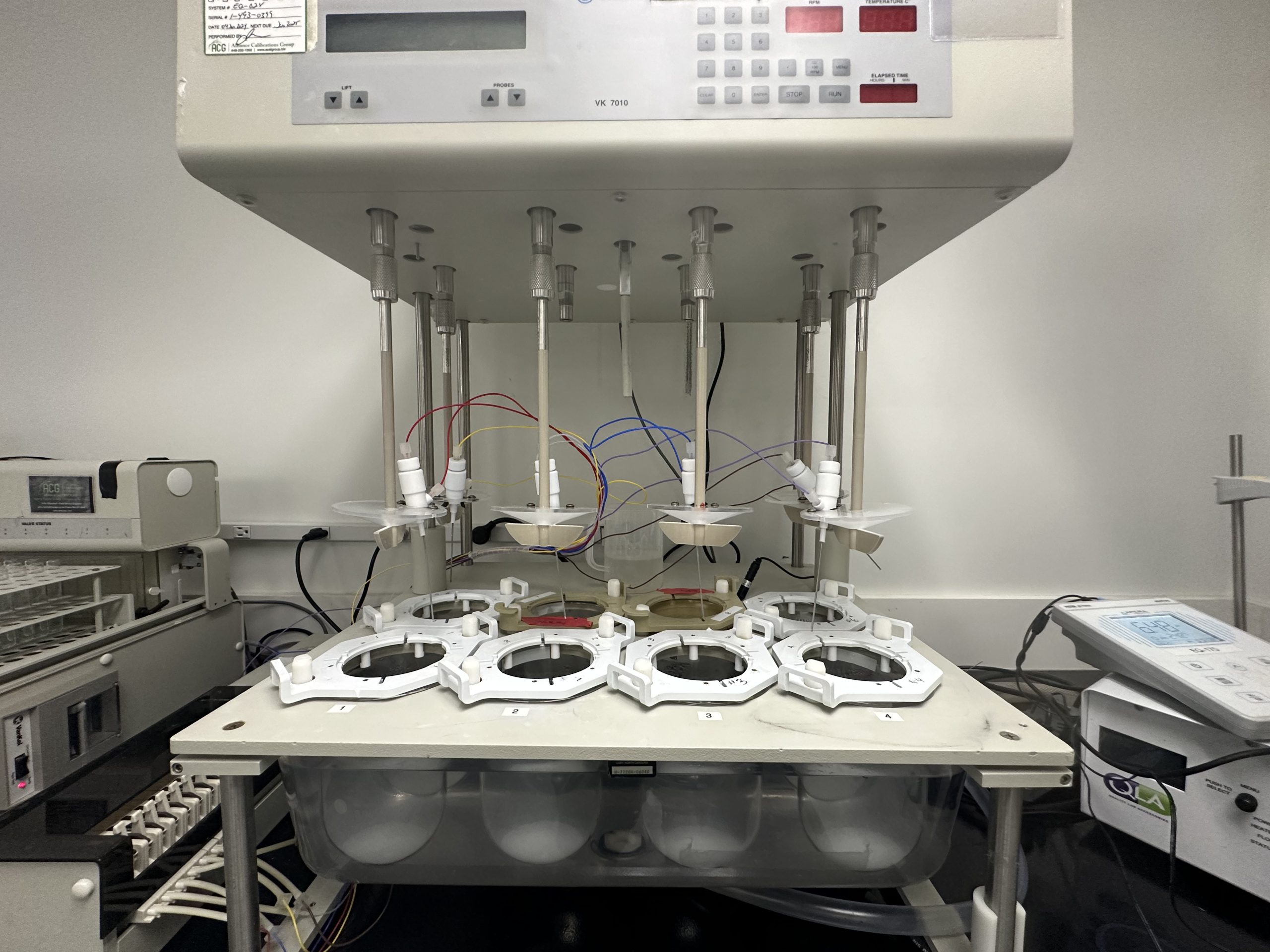Home » Analytical Testing
Analytical Testing of Pharmaceutical Products
FDA regulations mandate pharmaceutical products which are manufactured as clinical supply material or commercial sale to comply with pre-established testing specifications using qualified, validated methods. This requires an analytical method to first be developed prior to any product testing.
Analytical method development ensures that the test method will yield reliable data. Once complete, the analytical method is either qualified – depending on the phase of the clinical program (phase-appropriate analytical method validation) – or must be validated prior to cGMP use. Testing must be performed on all appropriate quality attributes of the pharmaceutical product which affect its efficacy and safety.

Vici Health Sciences has the needed expertise and experience to guide you through the regulatory requirements, so you don’t spend time and money on unnecessary tests and instead employ the correct testing regiment for smooth, timely completion of your project while staying within your budget. Tests are performed in our cGMP analytical lab by experienced, qualified analytical chemists and all results are verified by our Quality Assurance (QA) department.
Required Testing May Include:
- In-Process Testing – performed during manufacturing operations.
- Release Testing – performed upon completion of manufacturing and prior to clinical supply material or commercial material use. Testing data is provided in the form of a Certificate of Analysis (COA). This test is performed as a quality control measure (QC testing) to ensure the product has been manufactured according to pre-established specifications.
- Stability Testing – performed upon product storage in ICH stability conditions to establish product shelf life. This data is used to support commercial shelf life and to support clinical study duration.
- In-Use Stability Studies are performed to establish a shelf life when the packaging material has been breached.
- Bulk Hold Stability Studies are performed to support manufacturing operations.
- R&D Testing - conducted during product development to aid in decision-making during formulation development.
- Process Validation Testing - additional testing is also performed anytime there is a change in manufacturing process and/or scale-up operations to ensure that the manufactured product at a new site or new scale conforms to the original product specifications.
The type and number of tests performed depends on the dosage form, route of administration, phase of the development program, and other specific details related to the product itself. The development of a testing plan requires considerable experience in both formulation development and analytical chemistry, as well as a deep understanding of cGMP concepts and FDA regulations to determine the appropriate analytical tests needed for a given product at a specific stage of drug development.
We have considerable experience and expertise in FDA regulations, formulation development, manufacturing process development, clinical supplies manufacturing, and product shelf-life determination. This coupled with our analytical chemistry experience and capability make us your ideal R&D partner to help you with all your analytical testing needs.
Ready to Get Started?
Tell us about your upcoming project
Most Common Analytical Tests Include:
Product Physical Appearance Evaluation
Product physical appearance evaluation and comparison to specifications
pH Testing
pH Testing, when appropriate (liquid, injectable, and ophthalmic formulations)
Identification Testing
Identification testing (ID testing) for drug substances or active pharmaceutical ingredients (APIs).
Assay Testing for Critical Ingredients
Assay testing for critical ingredients, including preservatives or antioxidants
Potency Assay Testing
Potency assay testing for APIs and drug products.
Impurity Testing
Impurity testing according to ICH guidelines, “IMPURITIES IN NEW DRUG PRODUCTS, Q3B(R2).” (specifications may differ)
In Vitro Release Testing
In Vitro Release Testing (IVRT), typically a dissolution test per US Pharmacopeia (USP) standards to demonstrate control over drug release rate in an in vitro setting. IVRT is also performed on drug products during R&D to aid in formulation development, which may utilize conditions different from those used in Quality Control (QC) testing.
Content Uniformity
Uniformity of dosage units, as established by the US Pharmacopeia (USP) and various FDA guidance. This is performed only on drug products.
Microbiology Testing
Microbiology testing on drug products or drug substances, including sterility testing for sterile drug products.
Residual Solvent Testing
Residual solvent testing, if appropriate on the drug product or drug substance.
Heavy Metals Testing
Heavy metals testing, if required on the drug product or drug substance.
Special Testing
Special testing based on the physical and/or chemical nature of the drug molecule and phase of the development project. This may include genotoxic impurity testing, nitrosamine impurity testing, nitrite testing, and/or enantiomer testing using chiral sensitive analytical methods.

